By Shaiq Hussain -
Media reports claim U.S. action against militants crossing into Afghanistan in case of North Waziristan operation
Advisor to the Prime Minister on Foreign Affairs and National Security, Sartaj Aziz and Secretary of State John Kerry held key talks last month in Washington DC that marked the resumption of the Pakistan-U.S. ministerial-level strategic dialogue, after almost three years.
Pakistan’s foreign policy managers described the resumption of dialogue an important development. But are also concerned about the future of Pak-U.S. relations in view of the imminent drawdown of the American forces from Afghanistan whose future is uncertain and the prospects of friendly ties between Islamabad and Washington are not too bright, once the U.S. is out of the region.
Irrespective of these worries and concerns, in the coming days much activity could be seen on the Pakistan-US relations front.
When these lines were being written, Pakistan’s Interior Secretary was all set to visit Washington from 24 to 28 February to hold follow-up talks on defence ties in the vital meeting of Defense Resourcing Conference (DRC). These talks will be held in pursuance of ministerial level strategic dialogue.
A Washington-based Pakistani diplomat told Pique that another important meeting on trade and commercial ties is slated for March 12-13 and Pakistan’s commerce secretary will be visiting the U.S. capital. The Pakistani commerce delegation will participate in the Pakistan-U.S. Trade and Investment Facilitation Agreement (TIFA) Council meeting.
Finance Minister Ishaq Dar would be in Washington in the second week of April to hold talks with U.S. finance officials for enhancement of economic ties. Recently, the U.S. Central Command (Centcom) Commander Gen Lloyd J. Austin III was in Islamabad. He held meetings with military leadership and the defence secretary and assured future continuity of security assistance to Pakistan.
An official of the defence ministry quoted the U.S. General telling the defence secretary that “continued assistance in training, education and Coalition Support Fund (CSF) will act as tools necessary to keep relations on solid footing.”
The official further said that in the coming days, Islamabad and Washington would discuss vital issues such as continuation of Coalition Support Fund (CSF) to Pakistan after the 2014 drawdown of American forces from Afghanistan, extension of military hardware and also Pakistan’s interest in the U.S. leftover military equipment in the western neighbouring state.
This is the bright side of the Pakistan-U.S. relations and some media reports appearing in the wake of the U.S. Centcom chief’s visit claimed the American General assured full action against the militants crossing over into Afghanistan in case of likely North Waziristan operation.
Nonetheless, there are certain areas which are a matter of concern as well, for both Islamabad and Washington.
For Washington, the ongoing stalemate in dialogue with the Afghan Taliban is disturbing as it adds to the prospects of uncertain future for Afghanistan. Related to this is Islamabad’s worry that its western neighbour could again plunge into civil war and strife once the U.S. is gone and that too without leaving behind stable political dispensation for Kabul.
In his remarks at the opening session of the last month’s meeting with Secretary Kerry, Sartaj Aziz expressed this concern. He said, “Pakistan will have to face the brunt of any instability that may engulf Afghanistan after 2014.”
Another serious issue that the Obama administration confronts is the Afghan President Hamid Karzai’s refusal to put his signature to the Afghanistan-U.S. Bilateral Security Agreement (BSA) that has forced the United States to come up with the threat of total withdrawal of its forces in that event. This has further added to the uncertainty.
Pakistan too will affected by this development. Pakistani officials complained to the U.S. that their security concerns were not taken into account when the U.S. withdrew from this region in the early 1990s after the defeat of the former Soviet Union’s forces. They want a stable and peaceful Afghanistan in 2014 and beyond.
Then, Pakistan’s foreign policy managers also demand from the U.S. not to look at Pakistan from the “two specific lenses of Afghanistan or terrorism” but to balance these concerns by giving due importance to its own security concerns.
Pakistan’s security establishment and the government are also deeply perturbed over the repeated U.S. media reports, (often based on leaks from unnamed American officials) that “Pakistan’s nuclear programme is threatened by terrorists and its nuclear weapons could fall into the hands of ‘rogue elements’”.
Pakistani policy makers believe that Islamabad’s concerns are not taken up by Washington with New Delhi with the same intensity as India’s concerns are raised on and off with Islamabad. Pakistani authorities also protest that the United States dubs Islamabad as its ally in the war on terror, but practically, it is only to make more demands on Pakistan.
Hence, many observers and policymakers in Islamabad feel Washington must address all these concerns before it leaves Afghanistan. They don’t want Islamabad to be treated as a ‘client state’ but as a friendly country with which ties are based on mutual respect and protection of each other’s interests.
Defence analyst Brigadier (retired) Mehmood Shah says he believes there will be continued U.S. engagement in this region and also with Pakistan after 2014. However, he also cautions there will be tension in Pakistan-U.S. ties owing to American concerns about the safety of Pakistan’s nuclear programme.
“The U.S. is against Pakistan’s nuclear programme and it will continue to monitor it, a matter that causes worries and concerns in Islamabad. There are other conflicting issues as well but to me the nuclear programme is more important. This tension in ties with the U.S. and its likely continuity has forced Pakistan to realign its foreign policy and has come closer to China and Russia etc,” Shah said.
The visit of Sartaj Aziz in January was meant to give a clear signal to the U.S. that Islamabad wanted enhanced friendly ties. His trip followed Prime Minister Nawaz Sharif’s visit to Washington in October last year, which was also undertaken to reset relations harmed badly in 2011 after the operation and killing of Osama bin Laden in Abbottabad by U.S. special forces.
It depends on the United States how it forges its relations with its South Asian ally (Pakistan) beyond 2014. At present its needs Islamabad for a safe and honourable exit from Afghanistan and for that it expects the Pakistani authorities to exert influence on the Afghan Taliban to ensure safe withdrawal of the American troops.
The government circles in Islamabad and the security officials in Rawalpindi need Washington to see beyond 2014 and not to leave Pakistan in the lurch, the way it did after the defeat of the erstwhile Soviet Union in Afghanistan.
Some observers also believe that bilateral efforts will determine the nature of ties between U.S. and Pakistan after 2014.
Dr. Hasan Askari Rizvi, an analyst said, “Both Pakistan and the U.S. need to make efforts to take forward their relations, they both need each other after 2014.” He said, “The same assistance to Pakistan by the U.S. is not expected in the next five years once the Kerry-Lugar-Berman bill comes to an end in 2014. But the Obama administration needs to impress upon the American Congress to come up with another law vis-à-vis future assistance to Islamabad. This is an important region, Pakistan is an important nuclear state and the U.S. has interests in this region, which will remain so even after 2014.”
Dr. Askari further said, “If Pakistan is able to control militancy in its tribal areas, which at present is a matter of deep concern for Washington, it would be able to redefine ties with the U.S. in line with its own aspirations.”
The writer is a journalist based in Islamabad










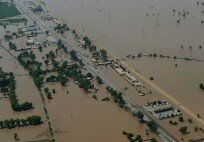
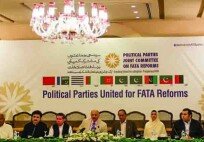
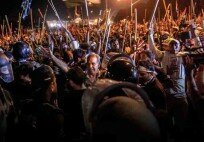






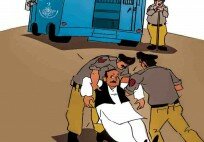

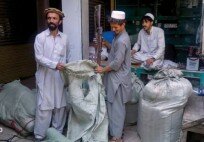









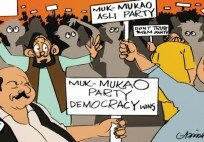
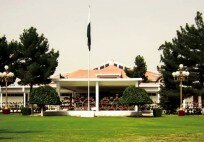






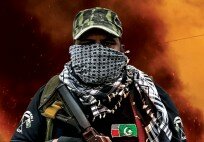
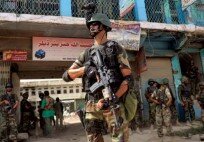
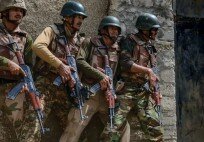
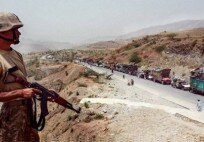









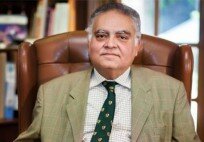


















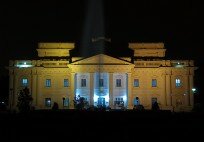
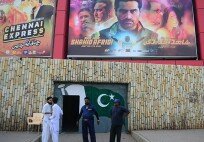














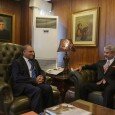
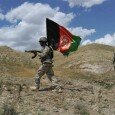
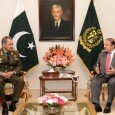
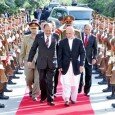



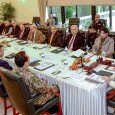

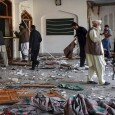
Recent Comments